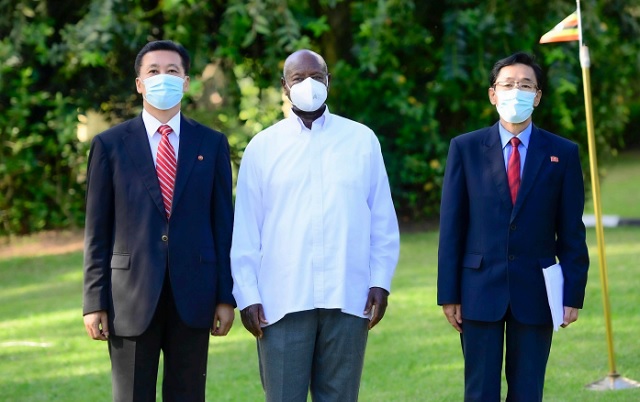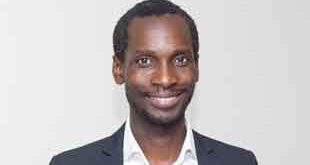
Embassies close, US issues harsh business advisory
Kampala, Uganda | IAN KATUSIIME | In a space of two weeks, North Korea and Norway announced they were closing their embassies in Uganda. The announcements came as a blow to Uganda which is always dealing with some kind of diplomatic blowback.
A statement from the North Korean ambassador Jong Tong Hak said “Our connections will be continued through Malabo- Equatorial Guinea. Our ambassador will soon present his credentials to you. Our physical absence cannot block our hearts, minds, and souls.”
It added “Our good friendship will continue and will be further strengthened and developed. I convey this commitment from my government. I have lived in Kampala for many years. I love Uganda and its people.” North Korea is closed off from many of Uganda’s international development partners but the two countries have maintained close ties.
A week earlier, the Kingdom of Norway said it was would close its embassy in 2024 citing “structural reforms” of its foreign service.
“As part of the reform process, changes are being made in the diplomatic presence abroad. Concentrating and consolidating is expected to better serve Norwegian national interests, and to increase the effectiveness of Norway’s international engagement.” The statement said that the Nordic country is scaling up its presence in some locations and as a consequence, there would be painful drawdowns in other places. The Norwegian embassy in Uganda covers Rwanda and Burundi.
These adjustments have seen five Norwegian missions close in 2023. The embassy emphasized that its closing in Kampala is based solely on overall administrative assessments related to the need for reallocation of the resources of the Foreign Service. “Uganda is a long-standing partner to Norway, and the excellent bilateral relations are highly valued. Norway wishes to maintain the strong ties that exist between the two countries.”
The Ministry of Foreign Affairs was yet to issue a statement on the closure of the two embassies. According to analysts who have commented on the issues, the absence of embassies will make it hard for coordination of certain activities and programmes because there are usually dedicated staff who follow up on such issues.
Norway had a number of issues it was working on such as the Oil for Development programme where it was invested in building institutions for an effective oil and gas sector. Norway was involved in Uganda’s power sector where it worked with all the relevant bodies in generation, rural electrification and regulation of the sector.
Norway was renowned mostly in the energy sector and according to an interview with former Ambassador Elin Østebø Johansen in The Independent, it was the most important part of the bilateral cooperation with Uganda. Norway was also part of the Troika including U.K. and U.S. who have contributed to the peace process in South Sudan that Uganda is a part of.
By extension, Ugandan diplomats will bear the biggest burden while trying to work through new relationships to follow up on the portfolio of work that Uganda has been doing with Norway.
Though less demanding, Ugandan diplomats will now turn to Equatorial Guinea for its work with North Korea. North Korea was known for providing instructors for the Kabalye Police Training School in Masindi district during the time of former Inspector General of Police Gen. Kale Kayihura.
However according to informed sources on the matter, this arrangement stopped after Western countries complained. The instructors had been stationed in Uganda for years until sanctions pressure compelled Uganda to end the relationship. Uganda was also buying arms from North Korea.
A visit by South Korean President Park Geun-hye to Uganda in 2016 led to a re-set of this long standing relationship. After President Museveni met his visiting counterpart, Geun-hye, Uganda started complying with the UN sanctions against North Korea for its missile and nuclear weapons programme and ended the military cooperation.
Uganda went to great lengths to show that it had severed its military partnerships with the country. Just a month after the South Korean leader’s visit, Uganda took part in an Intelligence Exchange conference with South Korea. The then chief of military intelligence Brigadier Charles Bakahumura led the Ugandan delegation where issues of North Korea came up.
The Ugandan government submitted a report on its implementation of U.N. Security Council Resolution No. 2270 and announced that it would no longer continue any form of military or police partnership with the North.
In spite of all the push by Uganda to end its military ties with North Korea, the diplomatic ties remained.
History of Uganda and North Korea
North Korea and Uganda have had formal ties since Uganda attained independence in 1962.
According to the New York Times report of May 2016, North Korean officials had been visiting Uganda since the days of Kim Il-sung grandfather of the North Korean leader Kim Jong-un who cultivated ties with African countries when he was president.
President Museveni has also cultivated strong ties with North Korea. He first visited the country in 1970 as he started his political career. Writing in his book Sowing The Mustard Seed, Museveni said he accepted to visit North Korea on the condition that he is taught how to use a gun.
According to media reports, Museveni went to North Korea three times early in his presidency. Thereafter, he remained close to the country through a series of engagements.
“In 2014, he received a North Korean delegation led by Kim Yong-nam, the No. 2 man in the North’s hierarchy. But that year, his government declined to receive an International Kim Il-sung Award that the North offered to Mr. Museveni,” the Times reported.
As Ambassador Jong Tong Hak bid farewell to Museveni, he said “My government still vividly remembers your famous speech at the UN General Assembly in 2017 which you made before the world as you expressed your gratitude to our government, such a speech made us happy, and we are grateful.”
Museveni commended Hak for his service in Uganda. Hak has been in Uganda since 2009; first as the deputy ambassador and later as full Ambassador.
US business advisory
As Uganda was dealing with the closure of the two embassies, the U.S. State Department together with the Departments of Labour, Health and Human Services, Commerce, and the U.S. Agency for International Development (USAID) on Oct. 23 hit the country with a bombshell: a business advisory warning U.S. businesses, individuals, and U.S. persons of potential risks if they conduct or are or contemplating conducting business in Uganda.
“Businesses, organisations, and individuals should be aware of potential financial and reputational risks resulting from endemic corruption, described in more detail in the 2023 Investment Climate Statement, as well as violence against human rights activists, media members, health workers, members of minority groups, LGBTQI+ persons, and political opponents,” the business advisory stated in detail.
It also said that Uganda’s enactment of the Anti-Homosexuality Act (AHA) increases restrictions on human rights, to include restrictions on freedom of expression, peaceful assembly, and exacerbates issues regarding the respect for leases and employment contracts.
The U.S. State Department in its 2023 Investment Climate Statement says whereas the Ugandan government strongly welcomes foreign investment in the country, the government’s actions do not always align with its rhetoric. “The closing of political and democratic space, poor economic management, endemic corruption, growing sovereign debt, weak rule of law, growing calls for protectionism from some senior policymakers, and the government’s failure to invest adequately in the health and education sectors all create risks for investors,” the statement said.
The Investment Statement said U.S. firms often find themselves competing with third-country firms that cut costs and win contracts by disregarding environmental regulations and labour rights, dodging taxes, and bribing officials.
“Shortages of skilled labour, a complicated land tenure system, and increased local content requirements also impede the growth of businesses and serve as disincentives to investment.”
The U.S. business advisory came just months after a spirited debate among Ugandans on the country’s inability to be promoted as a business destination like its two neighbours; Rwanda and Kenya.
This was after a video went viral of U.S. Ambassador to Kenya Meg Whitman pitching to American investors on why they should invest in Kenya. Whitman made a moving pitch about Kenya’s position as a regional logistics, financial and tech hub while meeting leading American business magnates in the U.S.
For Uganda, the law against homosexuality seems to be the tip of the spear for its diplomatic troubles this year.
High ranking Ugandans are said to be on a no-travel list to the U.S. since the passing of the law which imposes harsh penalties on those found indulging in the practice or those abetting it.
The World Bank also announced that it was suspending loans to Uganda as a result of the law. Due to the anti-gay laws and the politically tense environment, American envoys in Uganda have focused on democracy, governance, healthcare, education, capacity building efforts and other civic engagement activities.
 The Independent Uganda: You get the Truth we Pay the Price
The Independent Uganda: You get the Truth we Pay the Price



How about the DP-led US government led the way byall-together closing the US Embassy in Uganda and severing all ties with the Ugandan people and boldly declaring its diagreement with Uganda for passing the AHA bill into law? That would be much better than all this hypocrisy of pointing out the speck in Uganda and yet a beam of wood is in prevalent in the US.